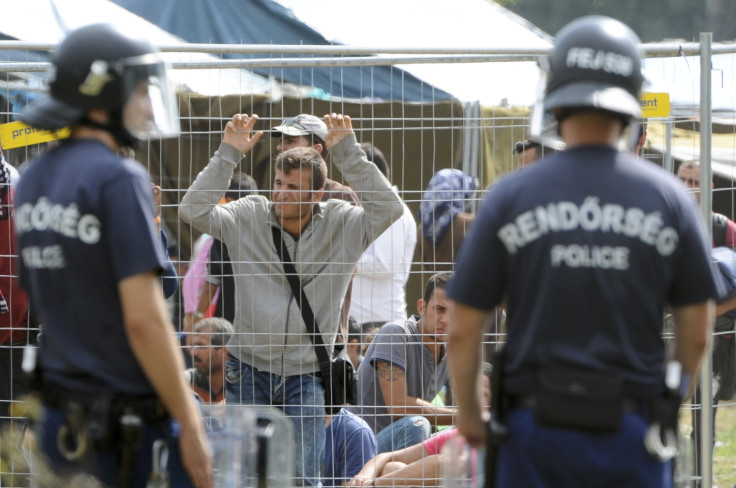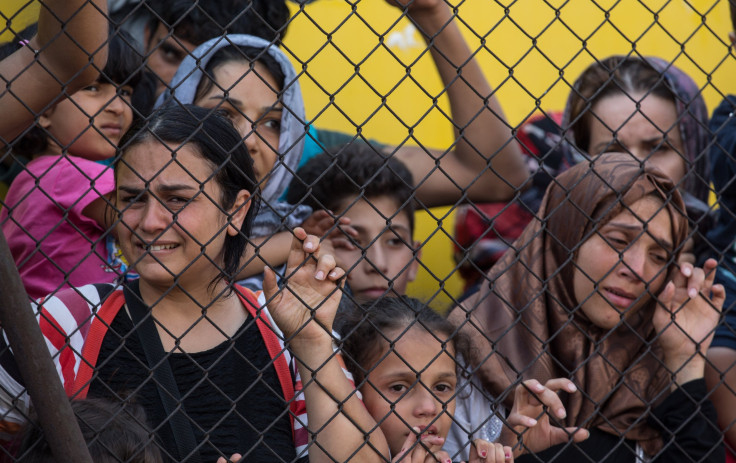EU 'Radical' Refugee Detention Program In Italy, Greece Supported By European Leaders

European Union leaders are likely to approve a "radical" stance on detaining refugees flooding into Europe, the Guardian reported Monday. The new plan would reportedly include creating large detention centers somewhere (undetermined) near Italy and Greece, two of the most popular points of first entry, in order to deter some of the thousands of refugees who have been arriving daily on Europe's shores this summer.
Greece and Italy have been two of the most popular first-entry nations because of their geographic proximity to conflict regions in the Middle East and North Africa. The internment plan would house asylum-seekers in these large facilities, where they would be cared for and fed while waiting for their applications for asylum in their country of choice to be processed. Internment centers in southern Europe would also allow for the swift deportation back to Syria and other home countries of those who were denied refugee status in the EU.
The Brussels summit on migrants and refugees comes Monday as the crisis grows daily and tensions between border police and refugees are at an all-time high. Countries throughout the EU have responded to the crisis with various approaches, including welcoming refugees by the thousands, as in Germany, for instance, to sealing off all borders, such as in Hungary.

“It is crucial that robust mechanisms become operational immediately in Italy and Greece to ensure identification, registration and fingerprinting of migrants," read a draft statement prepared by EU ambassadors Monday morning. The new internment process would also allow European authorities "to identify persons in need of international protection and support their relocation; and to identify irregular migrants to be returned,” according to the same statement.
Refugee status is given to those who can prove they are fleeing political or sectarian violence, according to United Nations, whereas "irregular migrants" are people who are looking for better economic opportunities in a new country.
© Copyright IBTimes 2024. All rights reserved.






















